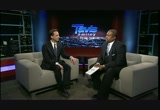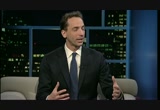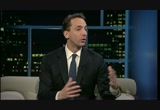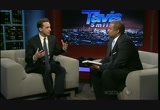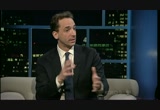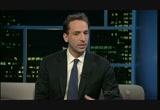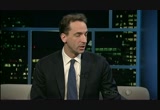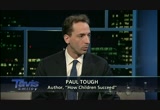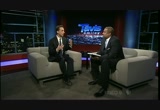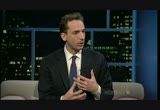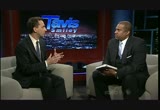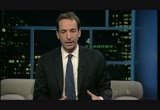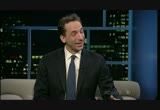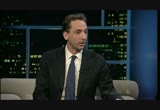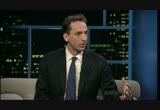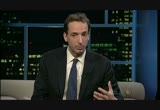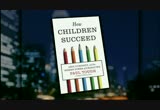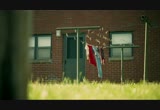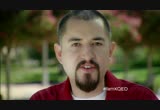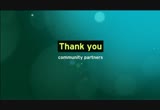tv Tavis Smiley PBS November 21, 2012 2:30pm-3:00pm PST
2:30 pm
how and why some children succeed more than others including the devastating impact of poverty on a child's chances for success. the book profiles the work being done in new york by educator geoffrey canada. if we are glad you have joined us. coming up right now. >> there is a saying that dr. king had said, there is always the right time to do the right thing. i just try to live my life every day by doing the right thing. we know that we are only about halfway to completely eliminate hunger and we have work to do. walmart committed $2 billion to fighting hunger in the u.s. as we work together, we can stamp hunger out. >> and by contributions to your pbs station from viewers like you. thank you.
2:31 pm
tavis: paul tough is a contributor for the new york times magazine, published a book on education this year, how children succeed, the hidden power of character. good have you back and congratulations on your success. can i pick apart the title? how children succeed, i get it. the hidden power of character, it seems to me that the way the kids learn is to be encouraged to try and to fail. try again, fail again, fail better. it is a wonderful quote from
2:32 pm
beckett but parents don't want their kids to fail. they are trying to get into competitive schools, but how do learned when nobody encourages you to try and fail? >> i think it means that we need to change things in lots of different venues. we also need to start that change at home. the message to parents is that if you don't give them the opportunity to fail, to fail productively and creatively, they're going to get out there in the world and they will hit some kind of setback. that is the problems of many kids are having, if they have not had that opportunity and if they have been protected from failure, they really get thrown off. >> this is not rocket science. i have said many times that what
2:33 pm
some kids lack is exposure. let me be frank. the kids of the white elite have access to exposure. like the old kodak film, kids are like that. all they need is a little exposure. once they get exposed, the picture comes into view for them. curiosity has to be with living in an environment where you get exposed and your curiosity grows and you can channel that sort of curiosity. the kids that succeed are curious because that curiosity is encouraged. >> i take your point, but i think it goes beyond simple economics, kids can be curious about a couple of blocks. you don't need complicated toys to be curious. to me, it is much more about the environment.
2:34 pm
there are lots of parents that are encouraging their kids ask questions. that is what built curiosity more than anything else. tavis: no matter how carias i might be, if my situation means i never get outside of these blocks, how does curiosity get for the rest? >> i think there is no question that there are different opportunities when they come from different economic backgrounds. curiosity transcends that more. i will absolutely take the point. there are different kinds of opportunities. tavis: since when is the power of character hit in? -- hidden? when you say the hidden power of character, where is it hidden? >> the importance of it is
2:35 pm
headed in the school system. certainly, the idea of character and education, it is this pendulum swing back and forth from us emphasizing character to emphasize an iq and cognitive skills. what i think has happened in the last 20 years is the pendulum has swung about as far as it can toward the cognitive side of the occasion. i think that has to do with federal policies and a bigger culture shift. getting into the right preschools as early as possible, above all else. tavis: if character matter is, how why have we had such a devil of a time getting a values education curriculum? it was written about many years ago. but why such a difficult uphill battle to get a values education
2:36 pm
curriculum? >> i went back and looked at another era where people were talking about character in the 1990's. in lots of ways, it really did spread. the problem is, a lot of them are not effective. the conversation got very politicized in the '90s, people on the left thought character education was about indoctrinating kids with conservative ideas. and i think what that meant was that everything got watered down so a lot of the character education programs are just sort of the value of the week, it doesn't really hit home. what is interesting to me, they are just experiments that are coming along now, they're talking about character in a somewhat different way, talking about it with performance
2:37 pm
character. optimism, the different skills that help kids succeed. the hope is that it will allow them to arrive around some of the political arguments. tavis: what i am about to say as with the greatest level of respect. i'm just playing devil's advocate here. maybe this is a waste of trees because all you had to do is say, the hidden power of character, and in the first page, simply say god bless the child that has his own. to put another way, poverty. if you are in an impoverished environment, there are examples of those that come out of these environments and they end up being successful or blessed in their personal and professional endeavors, but the chances of
2:38 pm
doing that, the obstacles are far greater. it is a long way of asking or saying, how much does poverty really matter? >> it matters a lot. i have been writing about poverty for almost a decade. when you do the reporting that high do, you hear the success stories. they do feel rare and random. what is interesting to me about the science, it is giving us, for the first time, a better way of understanding what poverty does to kids. i think we are understanding how better why that is. it is giving us a way to look it the success stories more scientifically, to say, what kind of interventions do they
2:39 pm
need to succeed? there are moving toward a place where they can have those kind of success stories and be more reliable, working for millions of kids. tavis: i will ask you tell me more about the science? i will give you the opportunity to open up on that. why does it take science? hugh know my work on this issue. it just troubles me that people have to have that work. laying out the science of what poverty does to kids, to understand that that suffering israel. and we ought to take that suffering seriously, and poverty matters. why does it take somebody having to do this much research?
2:40 pm
scientific data that convinced them. i think there is a big picture. it is really hard on kids. exactlywe don't know what is going on or why kids are growing up in poverty tend to succeed so much less, they can give their own explanations for that. i will say it is the economy. some will say neighborhood conditions, the families and schools. that is just confirming our own biases. we are often talking past each other.
2:41 pm
it just feels like people calling in, the same talking points of people being oppressed or lazy. i want to change because it should push them from that c aring. tavis: the science tell us -- what does science tell us about that? dr. the biggest impact is the biology of stress, the way that when kids grow up around stress that is chronic and intense, it gets under the skin and alaska lifetime. it affects the kind of skills that matter so much. the other set of research that is important is about connections with parents. when kids are able to form close
2:42 pm
bonds with a parent, how they are somewhat protected from that. when you find kids that are able to make that jump out of poverty, whether a parent or somebody else is able to help them. all that plays out in schools, when you have neighborhoods with concentrated poverty, that means there will be more conflict or about the stress. tavis: what is the data saying to you about those kinds of toxic situations? to magically lifted these kids, is there something that can be done over time to reverse the
2:43 pm
impact? >> i would say that there are two sets of interventions that are the most promising to me. interventions that tried help families, especially in the first few years of a child's life when we know their brains are so plastic, malleable, and development is going on. it is still pretty early, pretty experimental, he is not just material support. that often makes for a closer relationship between -- those parents that are troubled, it can completely transform and have a huge effect on how those kids go doing forward. i think that is a time where
2:44 pm
people get into their own habits or patterns. the decisions we made between 6 and 10 down necessarily change our lives, and also in a positive way. and so when interventions work, especially in this character realm, encouraging kids, connecting with them, things that resemble group therapy sometimes, it often happens in the classroom or a mentoring program, kids can make dramatic changes. i was struck by the adolescents that went from being completely off track that comes from a
2:45 pm
mentor, a teacher, a relative. tavis: no matter how much data is put in front of someone or how much energy and effort is put into writing a book, there are certain refrains that you're going to hear. let me offer two or three of them. with all due respect, this is fundamentally exclusively about parenting in some people's minds. everything is solved. for those that say this is all about parenting, i say that the parents matter a whole lot. i think it is easier to give that kind of support, but we know there are lots of single
2:46 pm
parent families. it should take us, how we think about the interaction with government and families. that the responsibility for kids starts on the first day of vendor -- of kindergarten. that there is a public responsibility, a complicated declined across. -- line to cross. the interventions are crossing that line, finding ways to work directly with parents and support them. that is something that a lot of us are scared of. it also just lets us off the hook, it lets us say that if the parents are not doing the job,
2:47 pm
there is nothing we can do. >> to those that say children succeed, hard work and to the conditions be damned, you have to work hard. there are all kinds of policy makers, influence jurors, thought leaders, i pulled myself up by my bootstraps, it is ultimately about hard work. >> i think it is about hard work. in the south side of chicago, a lot of disadvantages for kids, a lot of them were enrolled in these programs, they're working harder than anyone i have ever seen. i think they get that message at those kids understand at that
2:48 pm
stage where they are behind other kids, how they have to work tremendously hard, and when kids see that there is a place to work hard, they can accomplish something and change their circumstances. i think that message is true no matter who you are, i think it is the message that lots of parents are saying that their kids. tavis: what about the notion about these issues, that we just fundamentally lived in a nation where children are talking points? but that they really don't matter. they don't fund campaigns, they don't vote, they don't have a say so about the future.
2:49 pm
there are just not enough of us speaking, fighting, defending them. the suffering just ends up being rendered invisible. >> i have my days where i feel very -- i feel like the conditions that the kids i am writing about are terrible. we have been putting up with it or ignoring it for decades or generations. at the same time, i do feel like there is this real american idea that we want kids to have opportunities to succeed. my sense of what is holding as back from engaging in those conversations in a more productive way is not that people don't care, i think it is
2:50 pm
that it makes us uncomfortable. it we feel ashamed of the situation so if we can have an excuse to turn our backs on, we can take it. we don't see solutions, we don't see there are interventions. when we see those, helping families is going to lead to that kind of success that we want for all kids. tavis: the best part about this but is that you offer some many examples of individuals and institutions that are doing that kind of work. that excuse doesn't go any more. >> i agree. i think they are all over the place. lots of people are working in different ways. the evidence is really clear,
2:51 pm
when they get that kind of help they need, they succeed. >> i know you don't have a scientific answer for this, but maybe you do. what do you believe about the success of this book? who is buying this? i am asking that because it is always an encouraging sign when you're talking about alexander, the industrial complex, something i have worked on over the years, it is nice to see a book for 40 weeks about the prison industrial complex that nobody talks about. you talk about succeeding, poverty, the scientific impact on kids. it stays on the west, it is something to rebel and and smile about.
2:52 pm
>> it says to me people are interested in these questions. i think a lot of the people interested in this book are people that our teachers, parents that are professionals and working in the field in one form or another. people are curious, and i think people are curious. what is going on? why is it such a hard problem to solve? i think they feel emotionally about it. i think they are looking for answers, and when it seems like someone comes along with a book like this, it is coming up on some new ideas, new research saying this is what is going on, i think people are eager to learn about that.
2:53 pm
tavis: if we are that ashamed and the issue is that hard wrap our brains around, can i take from that that this issue is an intractable problem? >> i hope not. i have my best to make -- i have my pessimistic days and my optimistic days. for individual kids and individual schools, there are lots of solutions out there and lots of success stories. i think if we can extrapolate from that, we can absolutely change outcomes. tavis: in terms of agency, what would make you most happy about how what people will do when they read the text? >> i think there are lots of ways that we can help, supporting organizations to
2:54 pm
improve opportunities and work directly with kids. one of the thing that is here -- clear, we can also talk to leaders. policy changes are a big part of this. the conversation is not happening to the degree that it should be happening. that is probably because we are not yelling at our leaders enough, that these things are important for us. tavis: the most talked-about book this year, how children succeed. grit, curiosity, and the hidden power of character. oh, good to have you on the program. that is our show for tonight, you can download it. as always, keep the faith.
2:55 pm
>> for more information on today's show, visit tavis smiley at pbs.org. tavis: hi, i'm tavis smiley. join me next time for a look at the latest numbers on poverty in america, that is next time. >> there is a saying that dr. king had said, there is always the right time to do the right thing. i just try to live my life every day by doing the right thing. we know that we are only about halfway to completely eliminate hunger and we have work to do. walmart committed $2 billion to fighting hunger in the u.s. as we work together, we can stamp hunger out. >> and by contributions to your pbs station from viewers like you. thank you.
2:59 pm
120 Views
IN COLLECTIONS
KQED (PBS) Television Archive
Television Archive  Television Archive News Search Service
Television Archive News Search Service 
Uploaded by TV Archive on

 Live Music Archive
Live Music Archive Librivox Free Audio
Librivox Free Audio Metropolitan Museum
Metropolitan Museum Cleveland Museum of Art
Cleveland Museum of Art Internet Arcade
Internet Arcade Console Living Room
Console Living Room Books to Borrow
Books to Borrow Open Library
Open Library TV News
TV News Understanding 9/11
Understanding 9/11
